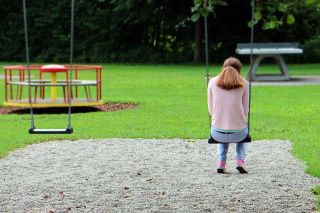Infertility
Infertility: Shame, Guilt, Loss of Control
Dark emotions are triggered, and need understanding.
Posted April 1, 2016

The Light Between Oceans, The Girl on the Train, The End of Miracles: people are drawn to novels involving babies.
More specifically, those involving the lack or loss of babies, or babies separated from their parents. And depicting would-be parents whose devastation leads to desperation, deceit or denial with grave consequences for all.
Whether these books’ characters are portrayed as alcoholics soothing their infertility woes at the bottom of a bottle or as well-intentioned surrogates who recognize too late that they have robbed someone else of their children and happiness, we can ask:
What universal nerve are these stories hitting that’s catapulted many of them to the top of international bestseller lists and to the big screen?
Contemplating parenthood is a major milestone in anyone’s life. The biological and psychological drives for parenthood are strong, and much of the world’s population of childbearing age can relate to them. But, at the same time, there is now also an increasing awareness that unexpected snags may hijack the process of fulfilling these drives and dreams. The rocky experiences of friends are cautionary examples. And the statistics are compelling: More than 1 in 10 married women ages 15 – 44 in the U.S. had problems with fertility in 2015 (according to the Center for Disease Control and Prevention). For women ages 35 – 44, 27% had impaired fertility, and of men aged 25-44, 12% did.
So, even if infertility is not currently a presence in one’s life, the fear of it often is. No wonder these novels resonate so strongly with readers from all walks of life. No matter how unique the plot and the characters are, they portray emotions and fears we can personally relate to and/or empathize with at a deep emotional level.
The psychological consequences of impaired fertility are serious:
Sense of failure: Although infertility and miscarriage are not uncommon occurrences, the men and women affected feel otherwise. They feel that not only their bodies have failed in one of the most basic human functions, but that as individuals they are failures.
Shame: Infertility and miscarriage induce deep wounds of feeling damaged and ineffective... From a psychological perspective, these are the roots of shame. Shame is intensely painful and can lead to self-loathing. Because of its intense painfulness, people try to shield themselves from it through denial or social withdrawal or any number of extreme behaviors. Thus, the protagonist of The Light Between Oceans allowed herself to “steal” another woman’s child. Shame can also drive those it affects to inflict harm on themselves through destructive behavior such as drinking -- as in The Girl On The Train.
Guilt: Whether infertility results from the man or the woman, that person will inevitably feel guilty. He or she might wonder: Does my partner still love me and want to be with me despite such a fundamental shortcoming? Does my partner feel trapped in our relationship given my inability to produce children? How much suffering has my infertility caused? No one wants to be responsible for inflicting the deep deprivation of childlessness on someone they love. The guilt about producing suffering gnaws at the psyche -- and even at the relationship itself.
Loss of control: Men and women facing infertility can feel that they are utterly lacking control over their lives, both present and future. Medical efforts may not be able to alter their biological circumstances. Again, the result can be intense anxiety, despair and grief -- which in turn can lead to depression, often severe.
These are profound experiences. As a psychiatrist, the powerful effects of infertility on self-identity led me to portray, in my novel The End of Miracles, the emotional devastation and startling behaviors that might occur when infertility and then miscarriage overwhelm a person who is especially vulnerable to grief and shame. The more conversation, including that stimulated by books, that brings the struggles of infertility out in the open, the better. The greater the personal and societal understanding that such feelings are neither unique nor shameful, the better.
Who among us has not struggled, even briefly, with the negative emotions of shame, guilt and feeling powerless to control the forces shaping our futures? Often times, these emotions and fears are not ones we wish to examine in ourselves. But it is through the arts, whether novels or film, that we are given the opportunity to experience them through a fictional character contending with the deep feelings and fears that inhabit us all, however under the surface they may be.




